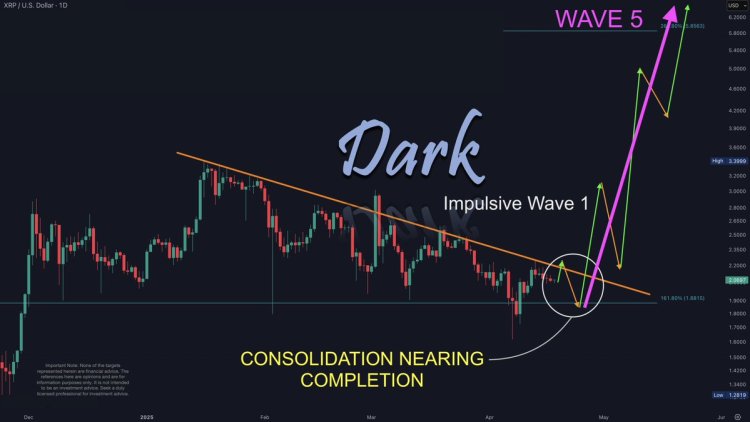Market
Gate.io Advances Blockchain Innovation at Lead Asia Demo Day and Seoul Meta Week 2024


Editorial Note: The following content does not reflect the views or opinions of BeInCrypto. It is provided for informational purposes only and should not be interpreted as financial advice. Please conduct your own research before making any investment decisions.
Gate.io, a world-leading crypto exchange, recently concluded its prominent hosting of Lead Asia Demo Day, alongside its participation in Seoul Meta Week 2024 as a Platinum Sponsor, reaffirming its leadership in both events. These platforms served as a stage for the future and advancement of blockchain technology, highlighted by keynote speeches delivered by Gate.io CEO Dr. Han Lin during Seoul Meta Week 2024.
Empowering Startups at Lead Asia Demo Day
On June 28th, Gate.io partnered with Wemade, a leading game developer in Korea known for its flagship IP, MIR, to host Lead Asia Demo Day in Seoul, drawing over 300 attendees. The event began with a welcome speech by Leo, Director of Strategy & Operations in East Asia, and Tiffany Chang, Investment Associate, highlighting Gate.io’s dedication to fostering innovation and driving industry growth.
They detailed Gate Ventures’ proactive investments and support for innovative blockchain startups, emphasizing their focus on community-driven tokenomics, genuine innovation, robust engineering, and sustainable business models across the Asia Pacific Region. Gate Ventures offers comprehensive support in areas like product development, code auditing, liquidity provision, and market making, ensuring startups receive essential resources and strategic guidance in today’s dynamic blockchain ecosystem.
Showcasing Promising Startups
During Lead Asia Demo Day, four promising startups—Batching.ai, CYRUS, Amnis Finance, and Quranium—presented their groundbreaking projects, each contributing to the limitless potential of Web3 development.
- Batching.ai: An AI-driven NFT Gaming Platform that utilizes NFT information and incorporates AI technology for image generation, allowing users to play games with their NFT decks.
- CYRUS: A blockchain startup focused on environmental and healthcare solutions, seamlessly integrating personal well-being, eco-friendly initiatives, and blockchain technology.
- Amnis Finance: The top #1 liquid staking platform on Aptos, with an impressive 10% staking apr and many farming yields. It has achieved over $104 millions in Total Value Locked (TVL) and more than 200K stakers.
- Quranium: The world’s first quantum-proof hybrid distributed ledger technology (DLT), designed to build a groundbreaking decentralized infrastructure prepared for the quantum computing era. This innovative solution stands out for its unparalleled speed and scalability, ensuring robust and future-ready performance in an evolving technological landscape.
Driving Forward with Vision and Passion
The startups showcased their innovative potential, making it a close competition for the Best Innovation Award. Ultimately, Batching.ai stood out for its groundbreaking work. Tiffany Chang commented, “We believe their cutting-edge AI-driven NFT gaming platform is set to revolutionize the Web3.0 gaming experience.”
At the end of the event, Gate.io extended its heartfelt gratitude to co-host Wemade, a pioneer among game developers in South Korea which adopted blockchain technology early to operate the world’s largest web3 game platform, Wemix Play, along with Golden Sponsors Quranium, Batching.ai, CYRUS, and Amnis, and Silver Sponsors Burrito Wallet, TetherMax, UNICE, WEMIX, and Kroma. Their generous contributions and invaluable support made this event possible.
Lead Asia Demo Day was a resounding success in fostering connections among Korean Web3 industry leaders and the community. “It was an absolute pleasure to be a part of this well-curated event by Gate.io. South Korea is a crucial market focus for Quranium, and Gate.io’s leadership in advancing Web3 initiatives in Asia will contribute significantly to building a strong ecosystem. We eagerly anticipate closer collaboration,” remarked Benjamin Shin, Chief Business Officer at Quranium.
Building Trust Beyond Blockchain
During June 26th – 28th, Gate.io also participated in Seoul Meta Week 2024 as a Platinum Sponsor, contributing to the gathering of industry leaders and enthusiasts to explore the future of blockchain technology. Dr. Lin Han, Founder and CEO of Gate.io, delivered a keynote speech titled “How We Build Trust Beyond The Blockchain,” focusing on recent security challenges in the industry and Gate.io’s mission to establish a secure and user-friendly environment, emphasizing blockchain development and financial innovation.
In addition to Dr. Han’s keynote, Tiffany Chang, Investment Associate at Gate.io, participated in a panel discussion on “AI in Web3: Transforming the Future of Decentralized Technology,” highlighting Gate Ventures’ belief in AI’s transformative potential within Web3. Gate.io also showcased a variety of technologies and innovations at its booth during Seoul Meta Week.
Seoul Meta Week 2024 and Lead Asia Demo Day were both successful events for promoting blockchain technology and its use cases and showed Gate.io’s commitment to driving Web3 innovation and industry development.
Disclaimer:
This event is for professional knowledge sharing and networking purposes only. The content herein does not constitute any offer, solicitation, or recommendation of any products or services. Please note that Gate.io may restrict or prohibit the use of all or a portion of the Services from Restricted Locations. For more information, please read the User Agreement via https://www.gate.io/user-agreement.
Disclaimer
This article contains a press release provided by an external source and may not necessarily reflect the views or opinions of BeInCrypto. In compliance with the Trust Project guidelines, BeInCrypto remains committed to transparent and unbiased reporting. Readers are advised to verify information independently and consult with a professional before making decisions based on this press release content. Please note that our Terms and Conditions, Privacy Policy, and Disclaimers have been updated.
Market
MiCA vs Trump’s Crypto Policy: Battle for Crypto Dominance


Since the implementation of MiCA in the EU and the shift in US policy under President Trump, both jurisdictions have progressed in crypto legislation, albeit with distinct approaches. Europe got a head start by becoming the first to establish a comprehensive and unified regulatory framework for crypto-assets. Meanwhile, the US is catching up, with more capital to offer and a larger user base.
Manouk Termaaten, CEO of Vertical Studio AI, and Erwin Voloder, Head of Policy at the European Blockchain Association, shared their perspectives with BeInCrypto on the areas where the EU and the US are demonstrating leadership in the high-stakes development of crypto legislation and who will ultimately set the pace for global crypto regulation.
EU’s MiCA and Early Regulatory Certainty
By implementing the Markets in Crypto-Assets (MiCA) regulation on December 30, 2024, the European Union made history as the first jurisdiction to create a complete regulatory structure for crypto-assets that applies to all its member nations.
Since then, leading companies like Standard Chartered, MoonPay, BitStaete, Crypto.com, and OKX, to name a few, have secured their licenses.
The United States, in turn, was slower to act. Instead of lobbying for comprehensive crypto legislation, industry leaders have concentrated on getting approval from the US Securities and Exchange Commission (SEC). Under the Biden administration, that turned out to be a particularly hard feat.
“The EU definitely had a first-mover advantage in getting regulatory certainty out the gate with MiCA. Especially since at the time, the US was retreating from leadership in the digital asset space and the industry was facing what amounted to persecution back home in many cases,” Voloder told BeInCrypto.
Former SEC Chair Gary Gensler became known within the walls of the crypto industry as being particularly hostile toward the technology, taking a controversial regulation-by-enforcement policy stance. Crackdowns became common, and many innovators packed their bags and moved abroad, seeking opportunities in friendlier jurisdictions.
“The US relied on existing agencies like the SEC instead of building a unified crypto law. Remember, Gary Gensler almost cracked down on the market and caused massive fear but never managed to get anything through. This does not mean regulation will never come and creates legal uncertainty that’s driven many projects overseas,” Termaaten said.
Now, under Trump, things have taken quite a turn.
How Does the US Approach Crypto Innovation?
The Trump administration aims to foster a predictable environment for US crypto innovation and expansion through clear regulatory frameworks. It strongly emphasizes keeping that innovation within the United States to establish its global leadership.
In pursuit of this goal, the administration has created working groups and task forces to develop detailed regulatory frameworks, including stablecoins and crypto asset classification guidelines.
“What we’ve seen under the Trump administration so far has been a complete roll-back of Biden-era regulations and weaponization of the agencies against crypto in favour of a light- touch, pro-innovation stance. He’s dismantling the DOJ’s Crypto Enforcement Team, the SEC’s new Crypto-Asset Task Force has a new mandate, under new leadership in Commissioner Pierce, and there’s ongoing investigations in the House against the systematic de-banking of digital assets businesses, and banks with revelations coming to light almost weekly,” Voloder explained.
As part of this new chapter in crypto regulation, the United States intends to forge its path, developing distinct crypto regulations rather than adopting the EU’s MiCA framework. Its intent diverges significantly from the European approach.
MiCA’s Regulatory Framework in the EU
MiCA provides the EU with a comprehensive and unified regulatory framework for crypto assets, extending bank-like rules focused on financial stability and consumer protection.
The regulation mandates licensing for crypto service providers and stablecoin issuers, aligning them with traditional finance and supporting the creation of a Central Bank Digital Currency (CBDC) as a digital euro to safeguard monetary sovereignty.
“The EU treats crypto as part of its traditional financial system– it’s cautious, centralized, and prioritizes regulation through MiCA and the upcoming digital euro (CBDC),” Termaaten told BeInCrypto.
The US, however, operates with a contrasting attitude.
US Focus on Private Innovation and Opposition to CBDCs
Trump has clearly stated that he intends to eliminate any regulations that promote CBDCs, citing concerns about government overreach and the erosion of financial freedom.
The United States now charts a policy course that champions blockchain technology through private innovation while firmly opposing CBDCs. This stance is underscored by a recent executive order in which the White House argues that CBDCs “threaten the stability of the financial system, individual privacy, and the sovereignty of the United States.”
Trump has also clarified that stablecoins are the priority for innovation, as they can help reinforce US dollar dominance.
Meanwhile, a notably fragmented approach has characterized the advancement of crypto legislation in the US. The absence of nationwide regulations has allowed certain states to establish an early lead, but others continue to lag in pursuing crypto innovation.
“The US, especially under Trump’s recent shift, is leaning harder into private-sector innovation, explicitly opposing a CBDC and focusing on blockchain as a new tech frontier, which the USA will be the capital from. The EU’s approach is about control and stability; the US’s is about flexibility and economic leadership through innovation. Both aim to protect consumers, but through very different methods,” Termaaten said.
These fundamentally different philosophies also allow for the analysis of which regulations yield the most favorable outcomes.
What are the Financial Burdens of MiCA Compliance?
The significant investment companies must make to obtain a MiCA operating license has drawn scrutiny. Though member states set varying fees, these are generally steep.
“[There are] high costs that are not in proportion compared to the gain for a business. It also just adds a layer of legal complexity most projects dont want to bring into their project. At Vertical AI, we decided it’s strategic to proceed with becoming compliant, but others could just geo-block EU users to avoid the burden,” Termaaten told of his personal experience.
MiCA mandates minimum capital requirements based on the crypto services offered. These range from €50,000 for advisory and order-related services to €125,000 for exchange and trading platforms and up to €150,000 for custody services. Businesses must maintain this capital as a financial safeguard.
Beyond minimum capital requirements, companies must factor in government and legal fees, local presence costs, bank setups, and ongoing operational costs.
“MiCA is an expensive regulation. Compliance in Europe can be an exorbitant expense and I think the main challenge going forward at least for start-ups is justifying the high up-front costs of advisory, licensing, auditing etc., when many of these companies have a fixed burn they need to manage. The last thing you want to be doing as a start-up is piling all of your capital into compliance when that money could have been put to better use developing/refining your product and your GTM,” Voloder told BeInCrypto.
In contrast, the US allows crypto companies greater leeway to innovate.
Flexible Regulatory Stance and Private Sector Innovation in the US
While the European Union’s MiCA regulation establishes a comprehensive and structured regulatory environment, the United States has opted for a more flexible regulatory stance.
This approach prioritizes the growth of private blockchain innovation, aiming to encourage rapid development and technological advancement within the crypto industry by providing a less restrictive regulatory environment.
“The US favors letting the private sector innovate, especially with USD-backed stablecoins, which it believes can expand dollar dominance globally. This approach avoids centralization while still enabling digital payments innovation. It’s very much a “let the market lead” philosophy. In my opinion, the way to go with crypto,” Termaaten told BeInCrypto.
Should the US continue developing crypto-friendly legislation, it will quickly position itself to outpace Europe in this regulatory race.
“The EU still leads in terms of finalized law (MiCA), but the US is regaining ground by openly backing the crypto industry and promising regulatory clarity. If that clarity turns into actual, friendly regulation, the US will become more attractive than the EU– especially for developers and fintech firms who value speed and scale + access to more venture capital,” Termaaten said, adding that, “While the EU is a large crypto market, the US still dominates in capital, user base, and market liquidity.”
This contrasting approach, favoring a more agile and less burdensome regulatory environment, illustrates the fundamental differences in how each jurisdiction envisions the future of digital finance.
Will the US or EU Ultimately Secure Global Leadership?
While the European Union secured an early advantage in the global crypto regulatory landscape through the comprehensive and unified framework of MiCA, its thoroughness and the significant financial investment required for licensing have inadvertently created barriers to rapid innovation.
This situation has opened a window of opportunity for the United States, particularly with the shift in administration under Trump. By adopting a more permissive and innovation-centric approach, dismantling perceived regulatory obstacles, and prioritizing private blockchain development, the US is quickly emerging as the preferred jurisdiction for crypto innovation.
Despite Europe’s regulatory clarity, the US’s focus on flexibility, coupled with its robust capital markets and extensive user base, positions it to potentially eclipse the EU as the true leader in fostering the next wave of crypto advancements, provided it can deliver on its promise of clear and supportive legislation.
Disclaimer
Following the Trust Project guidelines, this feature article presents opinions and perspectives from industry experts or individuals. BeInCrypto is dedicated to transparent reporting, but the views expressed in this article do not necessarily reflect those of BeInCrypto or its staff. Readers should verify information independently and consult with a professional before making decisions based on this content. Please note that our Terms and Conditions, Privacy Policy, and Disclaimers have been updated.
Market
Canary Capital Aims to Launch TRON-Focused ETF

Canary Capital has filed a Form S-1 registration with the US Securities and Exchange Commission (SEC) to launch a spot exchange-traded fund (ETF) focused on Tron (TRX).
The proposal, submitted on April 18, is the first of its kind to offer investors exposure to TRX’s market performance while also providing staking rewards. This sets the fund apart from previous spot crypto ETF proposals.
Canary Capital’s TRX ETF Could Test SEC Stance on Staking Assets
The filing designates BitGo Trust Company as the custodian for TRX holdings and appoints Canary Capital as the fund’s sponsor.
Justin Sun, the founder of Tron, weighed in on the development, encouraging US investors to act promptly. He emphasized TRX’s potential for long-term growth and suggested institutional interest would likely surge if the ETF is approved.
“US VCs should start buying TRX — and fast. Don’t wait until it’s too late. TRX is a price that only moves one way: up,” Sun said on X.
According to BeInCrypto data, TRX is currently the ninth-largest crypto by market capitalization, valued at approximately $22.94 billion.
Moreover, Tron’s blockchain has gained strong traction in stablecoin settlements, ranking second only to Ethereum. Its efficiency in processing fast and low-cost transactions has made it a preferred choice for Tether’s USDT, based on data from DeFiLlama.

While the proposal has created a buzz in the market, questions remain over its chances of gaining regulatory approval. The inclusion of staking within the ETF is a bold move, but the SEC has historically opposed similar features in other crypto funds.
The SEC has flagged staking services within investment products as potential unregistered securities, leading to increased scrutiny.
Due to this, past Ethereum ETF proposals were forced to remove staking components to align with regulatory expectations.
Nonetheless, several firms, including Grayscale, continue to push for altcoin ETFs that incorporate staking or offer broader asset exposure.
Still, regulatory uncertainty clouds the Canary TRX ETF proposal, especially in light of past controversies involving Justin Sun. The network has also faced allegations of being used by illicit actors, claims it has publicly denied.
If approved, Canary Capital’s ETF would mark a historic milestone by combining exposure to TRX with staking rewards. This structure could attract both retail and institutional investors seeking yield alongside market performance.
Disclaimer
In adherence to the Trust Project guidelines, BeInCrypto is committed to unbiased, transparent reporting. This news article aims to provide accurate, timely information. However, readers are advised to verify facts independently and consult with a professional before making any decisions based on this content. Please note that our Terms and Conditions, Privacy Policy, and Disclaimers have been updated.
Market
XRP Consolidation About To Reach A Bottom, Wave 5 Says $5.85 Is Coming

Reason to trust

Strict editorial policy that focuses on accuracy, relevance, and impartiality
Created by industry experts and meticulously reviewed
The highest standards in reporting and publishing
Strict editorial policy that focuses on accuracy, relevance, and impartiality
Morbi pretium leo et nisl aliquam mollis. Quisque arcu lorem, ultricies quis pellentesque nec, ullamcorper eu odio.
XRP is still in consolidation mode after hitting a new seven-year high in January 2025. This consolidation has seen the price drop slowly, but steadily, losing around 40% of its value since then. Currently, bulls seem to have created support for the altcoin at $2, as this level continues to hold even through crashes. Thus, it has created the expectation that the bottom could be close for the XRP price, and this could serve as a bounce-off point.
XRP Price Consolidation Could Be Over Soon
Taking to X (formerly Twitter), crypto analyst Dark Defender revealed that the consolidation that the XRP Price has been stuck in for months now is coming to an end. The analyst used the monthly chart for the analysis, calling out an end and a bottom for the XRP price. According to him, this is actually the “Final Consolidation” for XRP, suggesting that this is where a breakout would start from.
Related Reading
With the consolidation expected to come to an end soon, the crypto analyst highlights what could be next for the altcoin using the 5-Wave analysis. Now, in total, these five waves are still very bullish for the price and could end up marking a new all-time high.
For the first wave, Dark Defender calls it the Impulsive Wave 1, which is expected to begin the uptrend. This first wave is expected to push the price back to $3 before the second wave starts, and this second wave is bearish.
The second wave would trigger a crash from $3 back toward $2.2, providing the setup for the third wave. Once the third wave begins, this is where the crypto analyst expects the XRP price to hit a new all-time high. The target for Wave 3 puts the XRP price as high as $5, clearing the 2017 all-time high of $3.8.

Next in line is the fourth wave, which is another bearish wave. This wave will cause at least a 30% crash, according to the chart shared by the crypto analyst, taking it back toward the $3 territory once again. However, just like the second bearish wave, the fourth bearish wave is expected to set up the price for a final and more explosive Wave 5.
Related Reading
Once the fifth wave is in action, a brand-new all-time high is expected to happen, with the price rising over 100% from the bottom of the fourth wave. The target for this, as shown in the chart, is over $6.
As for the crypto analyst, the major targets highlighted during this wave action are $3.75 and $58.85. Then, for major supports and resistances, supports are $1.88 and $1.63, while resistances lie at $2.22 and $2.30.
Featured image from Dall.E, chart from TradingView.com
-

 Altcoin21 hours ago
Altcoin21 hours agoEthereum ETFs Record $32M Weekly Outflow; ETH Price Crash To $1.1K Imminent?
-

 Market13 hours ago
Market13 hours agoPi Network Roadmap Frustrates Users Over Missing Timeline
-

 Ethereum20 hours ago
Ethereum20 hours agoEthereum Price Stalls In Tight Range – Big Price Move Incoming?
-

 Market20 hours ago
Market20 hours agoAre Ethereum Whales Threatening ETH Price Stability?
-

 Market12 hours ago
Market12 hours agoSolana (SOL) Price Rises 13% But Fails to Break $136 Resistance
-

 Market14 hours ago
Market14 hours agoMEME Rallies 73%, BONE Follows
-

 Market19 hours ago
Market19 hours agoHow $31 Trillion in US Bonds Could Impact Crypto Markets in 2025
-

 Bitcoin19 hours ago
Bitcoin19 hours agoWhat Does This Mean for Altcoins?

























